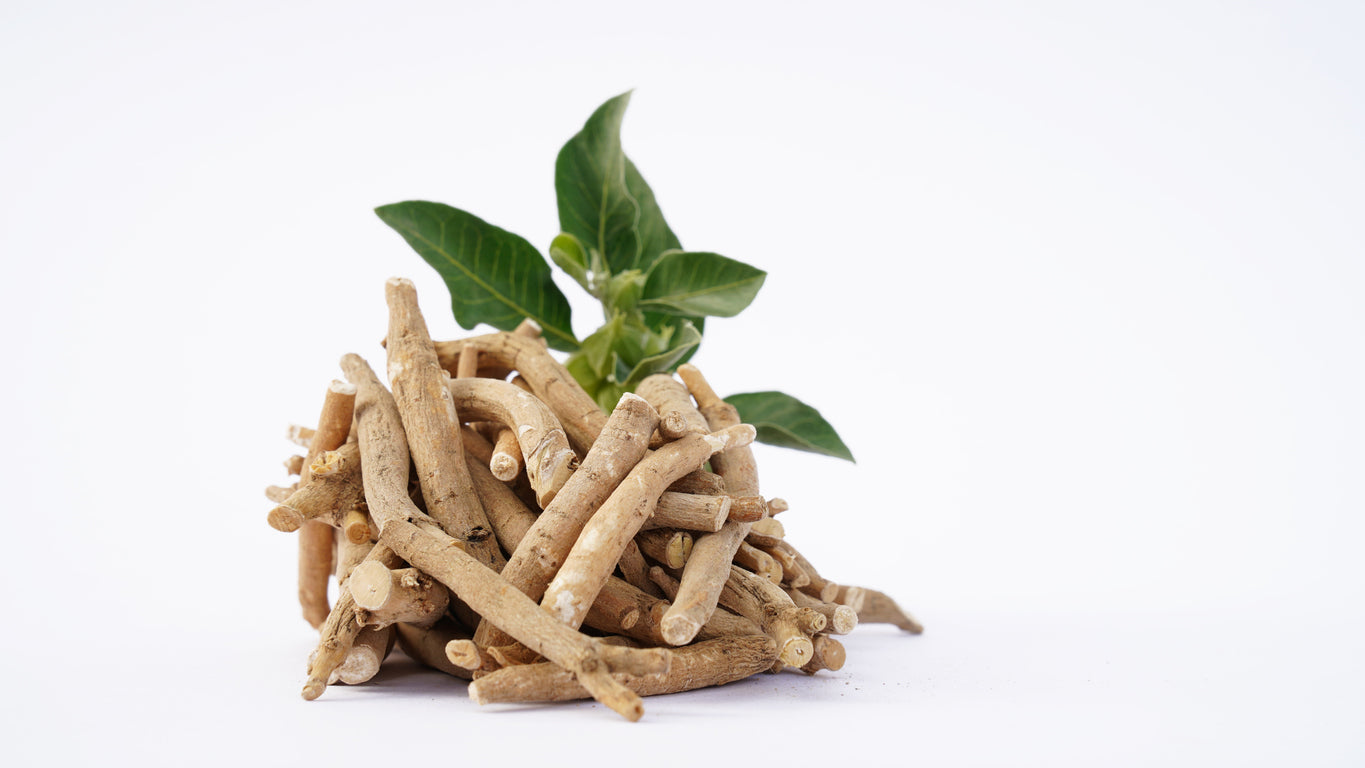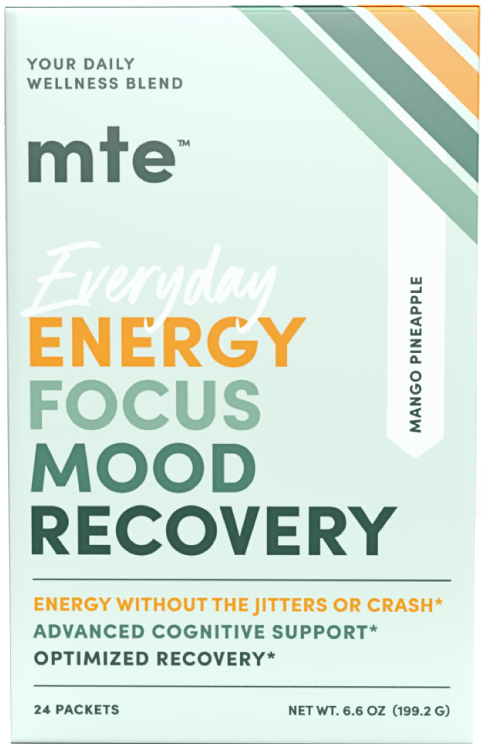
Holistic Energy Drinks with Ashwagandha Instead of Caffeine? Yes, Please!
If you’ve been searching for a way to get off the caffeine hamster wheel – whether it’s coffee, tea, or hi-octane energy drinks – the first question to be asked is: How will I manage to keep my energy levels up without caffeine?
Luckily, there are other plant-sourced compounds besides caffeine. Ones that offer support for energy (and a bunch of other cool stuff) but without the bad stuff that comes with caffeine like jitters, irritability, crash, tolerance… there’s a lot there.
Anyway – we all know that dependence on caffeine isn’t exactly healthy. Pop culture may say it’s good for the metabolism and that a daily cup of coffee is good for the heart, but there’s not a whole lot to back that up.
Meanwhile, we’ve got other holistic energy boosters like ashwagandha that do have a whole lot to back up their claims. So, let’s talk about caffeine, how it falls short, and how something like an ashwagandha energy drink can transform how you view and experience energy.
The Problem with Excessive Caffeine: The Bad Outweighs the Good
Short recap on how caffeine works:
- Within 45 minutes of consuming caffeine, it has been 99% absorbed by the body. Caffeine flows freely through tissue fluids and is small enough to flow through the blood-brain barrier.
- When it reaches the CNS, caffeine suffocates activity of the brain’s major I’M TIRED signaler.
- Blocking these signals indirectly increases activity of your brain’s stress response system, the HPA axis. This boosts the production of important pro-energy, pro-focus, and pro-motivation neurochemicals.
- Caffeine also inhibits chemical signals that have calming effects on the cardiovascular and musculoskeletal systems, mobilizing energy throughout your body.
- The effects of caffeine can be felt for 1.5 to 4 hours, but the chemical influence of caffeine may remain for up to 9 hours.
But what happens when the caffeine wears off? All that blocked I’M TIRED signaling comes rushing back, making you more tired than you were before, often before the other physical effects of caffeine wear off.
This results in fatigue, irritability, jitters, nervousness – all the things we hate about caffeine. And also all the things that make us reach for that second cup of coffee at lunch time.
Negative Health Effects of Excessive Caffeine Consumption
There’s a laundry list of long-term effects your daily coffee(s) or Monster(s) can have on your health:
- Sleep disturbances
- Mood disturbances
- Blood pressure irregularities
- Thinning of bones
- Stomach acidity
- Abnormal heart rate
- Chest pain
- Tolerance
- Dependence
And believe it or not, the withdrawal from quitting caffeine can be pretty brutal, especially if you don’t have a healthy energy drink alternative without caffeine to help you make the transition.
Is Ashwagandha a Suitable Solution for Cutting Out Coffee?
Speaking of healthy ways to get energy without caffeine, adaptogen drinks like ashwagandha energy powders can help. But what is ashwagandha? And how could a holistic energy drink provide the boost you rely on from that morning cup of joe?
Because it’s awesome – that’s how.
What Is Ashwagandha?
Adaptogens are a class of plants, mushrooms, and algae that are thought to help the body resist and recover from stress by balancing the body’s stress response and supporting the immune system. Ashwagandha (Withania somnifera) is an adaptogenic plant that has been used in traditional Indian medicine (Ayurveda) for 6000+ years for its multifaceted health benefits – one of which is energy.
Traditionally, ashwagandha tonics, powders and pastes have been used for:
- Arthritis
- Cancer
- Digestive issues
- Immune system support
- Insomnia
- Male fertility
- Strength and stamina
- Stress and anxiety
How Does Ashwagandha Work?
How is it that ashwagandha is useful for all these issues and maladies? Because of the way it affects certain CNS systems and neurochemical signaling. It is posited that ashwagandha:
- Fights stress by lowering levels of stress hormones and increasing levels of calming hormones. This action also improves nightly rest and recovery.
- Improves immunity by increasing white blood cell production and immunocompetent (T) cells.
- Optimizes cognitive function by increasing the production of brain-derived neurotrophic factor (BDNF), a protein that promotes the growth and survival of neurons.
- Reduces inflammation by lowering the production of cytokines.
- Increases energy and endurance by improving mitochondrial function and increasing the production of a neurochemical that serves as the body’s energy currency.
Much of this is due to, or related to, ashwagandha’s effect on the HPA (hypothalamus-pituitary-adrenal) axis. Where caffeine overloads the body’s stress response system to push all the I’M AWAKE AND ALERT chemicals and block the I’M TIRED chemicals, ashwagandha effectively balances the interactions of those chemicals, creating an energy boost that comes with a calm mood and a clear mind.
Plus, there’s no awful rebound when an ashwagandha energy drink wears off. Plus plus – because ashwagandha acts systemically, its effects are sustainable and accumulative, meaning a daily ashwagandha energy drink habit can help you feel better over time without any noticeable (or hidden) adverse experiences. Sounds way better than your daily caffeine habit, no?
The Evidence: Ashwagandha Really Does Boost Energy
Let’s talk receipts. Ashwagandha is now one of the most well-studied adaptogens and has a solid (and growing!) body of research to support many of its abilities, including energy production. Some recent compelling studies include:
- In a 2010 study on physical performance and cardiorespiratory endurance in healthy young adults, ashwagandha supplements improved speed, strength and VO2 Max.
- In a 2020 review of the literature on clinical use of ashwagandha to ameliorate cognitive dysfunction, ashwagandha improved reaction time, task performance, attention, and executive function in adults with mild cognitive impairments.
- In a 2020 study on how ashwagandha affects sleep, the treatment group experienced significant increases in sleep quality, as well as mental alertness and energy upon waking in the morning.
- In a 2022 study on the impact of ashwagandha on stress, sleep quality, energy, and mental clarity, taking an ashwagandha supplement each day resulted in improved sustained daily energy levels, sleep, quality of life, and mental alertness.
MTE: A Holistic Ashwagandha Energy Drink Packed with Bioactive Plants
If you’ve been looking for a way to cut caffeine, sugars, reliance on mainstream energy drinks, or just searching for something healthy that’s going to make you feel better, MTE is a great place to start. An ashwagandha energy drink with other energy-boosting adaptogens and nootropics like maca and eleuthero, MTE supports energy, focus, motivation, mood, recovery, and more.
Our energy drink powder is 100% holistic – natural and free of synthetic ingredients and artificial flavors and colors. MTE is dairy-free, gluten-free, vegan, keto – pretty much anybody can try MTE. Plus, there is no caffeine or added sugar!
Keep up a daily dose of this natural energy booster for 30 days, and we’ll bet you’ll wonder why you’ve ever tried to survive off caffeine in the first place.
Ashwagandha is a powerhouse adaptogen. And our formula is stacked with 10 other powerhouse plants, too. It’s an energy drink, sure – but it’s also much more. Peep your new go-to, feel-good energy drink powder.



